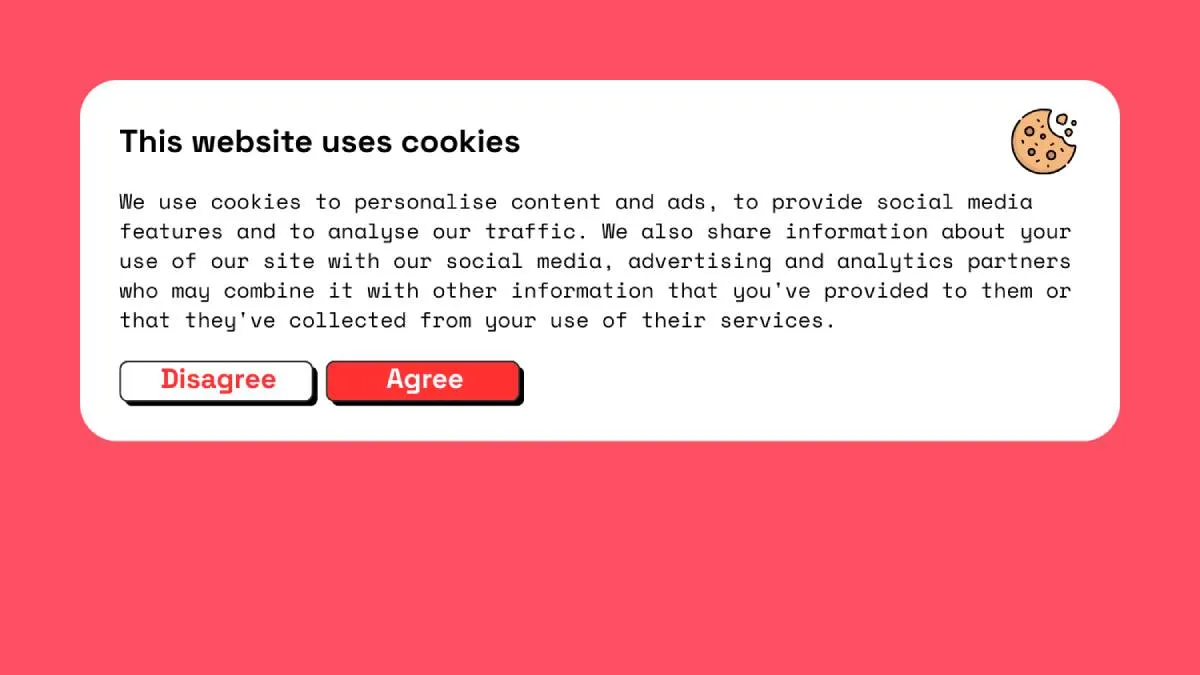Navigating the internet without encountering cookie prompts seems nearly impossible these days. You’ll usually see a pop-up asking you to either “accept all” or “reject all” cookies. Sometimes, there’s a third option or a link to further fine-tune your preferences. These pop-ups can be quite distracting, and your instinct might be to dismiss them quickly—perhaps by clicking that “accept all” button. But what are these cookies, really? Why do they keep popping up, and what are the consequences of accepting or rejecting them? As you’ll discover, each choice has implications for your online privacy.
So, what exactly are cookies?
Cookies are small files that websites store on your device. They’re designed to improve your browsing experience, especially on sites you visit frequently. For instance, cookies can remember your login details and preferred news categories or text size. They can also help online shops recommend products based on your browsing habits. Advertisers use cookies to track your online behavior and serve targeted ads.
There are different types of cookies, which can be categorised by their lifespan. Session cookies are temporary—they’re created to keep track of items in your shopping cart, for example. Once your browser session ends or becomes inactive for a while, these cookies are automatically deleted. On the other hand, persistent cookies last longer and can identify you—they save your login information, allowing you to access your email quickly. These cookies have expiration dates that can range from a few days to several years.
What do the different cookie options mean?
When you visit a website, you might see pop-ups letting you know that it uses “essential cookies” that are vital for its functionality. You can’t opt out of these cookies, and you probably wouldn’t want to, as they are necessary for things like online shopping carts to work properly.
In the settings, however, you’ll find the option to opt out of “non-essential cookies.” These can be categorised into three types:
- Functional cookies help personalize your browsing experience, such as remembering your preferred language or region.
- Analytics cookies provide statistical insights into how visitors interact with the website.
- Advertising cookies collect information to create a profile for you, enhancing the relevance of targeted advertisements.
Advertising cookies often come from third-party sources, which means they can be accessed and shared across various platforms and websites that you haven’t directly visited. For instance, Google Ads can track your online behavior not just across multiple websites, but also on different devices. This tracking is possible because you might use Google services such as Google Search or YouTube while logged into your Google account on those devices.
Should I accept or reject cookies?
Ultimately, the decision is yours. By selecting “accept all,” you agree to allow the website to use and store all types of cookies and trackers. This choice enhances your browsing experience, as it activates all website features, including those awaiting your consent. For example, any advertisement spaces on the site may display personalised ads tailored from the profile created by third-party cookies tracking your interests.
On the other hand, if you choose to “reject all” or simply ignore the banner, you’ll decline all cookies except those that are essential for the site's functionality. While you won’t lose access to basic features, you will miss out on personalised options and third-party content.
Your choice will be saved in a consent cookie, and you may receive a reminder every six to twelve months. Remember, you can always change your mind and update your preferences in the “cookie settings,” typically found in the footer of the site. Some websites may label this section as the cookie policy or incorporate it within their privacy policy.
How cookies impact your privacy
You might have noticed that cookie consent pop-ups seem to pop up everywhere. This phenomenon is largely due to a European Union privacy regulation that took effect in 2018, known as the GDPR (General Data Protection Regulation). This law establishes stringent rules for how personal data should be managed online.
According to these guidelines, cookies that identify users are considered personal data and must adhere to the regulations. In practice, this means that:
- Users must give their consent for cookies, except for those that are essential.
- Clear information must be provided about the data tracked by cookies.
- Consent needs to be recorded and documented.
- Users should still be able to access the service even if they choose not to accept certain cookies.
- Users should have the option to easily withdraw their consent.
Because a significant portion of web traffic is international, many websites outside the EU opt to follow GDPR guidelines to steer clear of potential legal issues related to privacy.
Better privacy controls
Cookie pop-ups can be incredibly annoying, often leading to what's known as “consent fatigue”—where you just click “accept” without truly understanding what you’re agreeing to. This undermines the whole idea of informed consent.
Fortunately, there's a better way to manage your online privacy: the Global Privacy Control (GPC). This tech specification, backed by a wide range of stakeholders including web developers and civil rights organisations, allows your browser to communicate your privacy preferences to websites. This means you don’t have to make explicit choices every single time you visit a site.
While GPC isn’t available everywhere yet and isn’t a legal requirement, several browsers and plugins do support it. Wider adoption will take some time. In the meantime, if you're concerned that you might have accidentally consented to unwanted cookies, you can easily find an option in your browser settings to delete cookies and start fresh (just a heads up, this will log you out of all your accounts).
ALSO READ: OpenAI launches 'Codex', new tool designed to assist with code generation, understanding
Inputs from PTI

